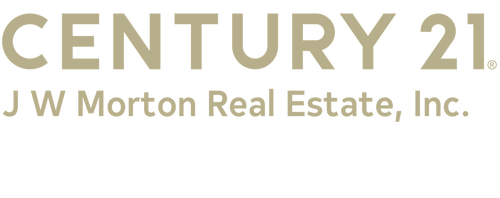From my guest blogger…
Retirement to Renovation: Seniors Turning Fixer-Uppers into Fortunes
Image via Pexels
Retirement doesn’t have to signal a slowdown. For many older adults, it’s the start of an entirely new chapter—one driven by autonomy, fulfillment, and, yes, profit. Enter the world of house flipping: an industry long dominated by younger, HGTV-fueled enthusiasts, but increasingly drawing in seniors looking to blend income with creativity. With years of life experience, financial discipline, and more flexibility in their schedules, seniors are uniquely positioned to thrive in this high-reward real estate game—if they approach it with the right strategies.
Experience Is an Underrated Asset
There’s a depth of wisdom that comes from decades of decision-making, and it can be a game-changer in real estate. Seniors tend to avoid impulsive buying, and in a market where timing and negotiation are everything, that patience becomes a serious advantage. They’ve seen economic swings and housing trends come and go, giving them an intuitive edge when it comes to recognizing undervalued properties. Plus, many already own homes and may have experience with renovations or home maintenance. Those life skills translate directly into the ability to assess properties realistically and plan upgrades that make sense.
Build Smarts Alongside Structures
Flipping houses doesn’t mean leaving learning behind—especially when going back to school can sharpen your edge. With coursework in accounting, business, communications, and management, you can learn skills that can help your business thrive in a competitive market. Online degree programs make it easy to manage your real estate work while going to school at the same time, giving you flexibility without sacrificing momentum. For those exploring long-term business degree career opportunities, formal education offers both practical tools and professional credibility that can elevate your flipping venture from a side project to a serious enterprise.
Partner for Strength, Not Speed
House flipping doesn’t have to be a solo act. In fact, for older adults, working with a reliable partner can be essential. Whether that’s a family member with complementary skills, a real estate-savvy friend, or even a younger investor looking for mentorship, these collaborations provide both energy and balance. Seniors bring strategic thinking and access to capital, while partners can handle physically demanding tasks or digital operations like social media marketing. The goal isn’t to move fast—it’s to move wisely, with support structures that make the whole venture more sustainable.
Understand the Numbers Like a Banker
This isn’t a hobby—it’s a business. Successful flippers live and breathe numbers, and seniors who want to succeed need to do the same. Knowing the after-repair value (ARV), estimating costs conservatively, and understanding market comps are all essential. But perhaps the most overlooked element is time: every week a home sits unsold, carrying costs eat into profits. Seniors often have more time to monitor projects closely and can spot budget creep or delays faster than someone juggling a full-time job. That vigilance can keep profits from slipping through the cracks.
Use Retirement Funds with Intention
One often overlooked benefit older adults have is access to retirement accounts that can be leveraged for investment. Self-directed IRAs, for example, allow property investments without incurring early withdrawal penalties. But the key is using these funds strategically—not gambling them away. A conservative, single-property investment with well-researched upside can be a smart way to test the waters without overcommitting. It’s not about flipping ten houses in a year. It’s about making one or two meaningful investments that can supplement retirement income and create long-term wealth.
Keep the Stress Low and the Satisfaction High
Unlike younger flippers trying to build empires overnight, older adults can afford to be more selective and deliberate. That slower pace allows for better decision-making and often better results. Flipping should feel exciting, not exhausting. Seniors should give themselves permission to say no to high-risk properties and avoid overly complex renovations. Working with a trusted agent who understands the goals of the project—and who isn’t pushing volume over value—can also help make the process more enjoyable. The satisfaction of seeing a once-neglected house become someone’s home is often just as fulfilling as the check at the end.
The real payoff in house flipping isn’t just in the dollars earned—it’s in the stories created. Many seniors enter the business not just for extra income but to leave something behind: a skill passed on to a grandchild, a contribution to a neighborhood’s revitalization, or simply the joy of having built something tangible in a season of life when that’s often overlooked. The combination of practical wisdom and a renewed sense of purpose makes seniors ideal candidates for flipping homes with both profit and principle. And in a market that’s always chasing the next trend, it’s this kind of grounded approach that can truly stand the test of time.


 Facebook
Facebook
 X
X
 Pinterest
Pinterest
 Copy Link
Copy Link

